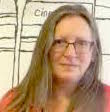



Web site logical path: [www.psy.gla.ac.uk] [~steve] [talks] [this page]
Authors / Presenters
| The authors | |||
 |
 |
 |
 |
| Sarah Honeychurch | Niall Barr | Jeremy Singer | Steve Draper |
| Business school | IT Services | Computing Science | School of Psychology |
| University of Glasgow | |||
Slides:
PDF
Related material:
A wider set of collected notes and references on the subject
We begin by briefly explaining the principles behind ACJ/APR before showing how this approach is being used here concurrently in a Futurelearn MOOC (n=1000) and an honours course in Computing Science (n=80), and providing examples of student reactions to this approach.
Computing Science students often write code before they have learnt to read other people's code (Glass, 2003). Our use of ACJ attempts to redress this imbalance at the early stages of encountering a new programming language. It is important that students have completed the task themselves before undertaking this peer review activity so that they have a deep understanding of the problem before they start to make judgements on the work of their peers (Nicol, 2018). This activity therefore only allows students to read other people's code after they have themselves completed the coding task.
The problem is deliberately set up so that a range of code solutions is possible. As learners see other learners' code, they rapidly gain insight into the alternative solution space. One student commented, "I'm impressed by how different the solutions are." Another said, "Isn't it always fascinating to see how different solutions might exist for the same problem?" (FutureLearn comments)
While the example we give is discipline specific, ACJ can be used for any task where there are a variety of "correct" solutions, and we would like to extend our use of ACJ/APR to other subjects. A major part of this session will be a group discussion of the applicability of ACJ to the audience's subject areas and suggestions for how this process might be refined.
Glass, R.L. (2003) "About Education" in: Facts and Fallacies of Software Engineering Addison-Wesley, Boston, MA.
Nicol, David (2018) "Unlocking generative feedback through peer reviewing" ch.5 p.47-59 in V.Grion & A.Serbati (2018) Assessment of learning or assessment for learning? Towards a culture of sustainable assessment in higher education Pensa Multimedia, pp.47-59.
Pollitt,A. (2012) "The method of Adaptive Comparative Judgement"
Assessment in Education: Principles, Policy & Practice
Vol.19 no.3 pp.281-300
doi:10.1080/0969594X.2012.665354
Correction to an equation (published vol.19, no.3, p.387 doi:
10.1080/0969594X.2012.694697)
In order to obtain further information about the conference, please visit Alt-C conference
Web site logical path:
[www.psy.gla.ac.uk]
[~steve]
[talks]
[this page]
[Top of this page]